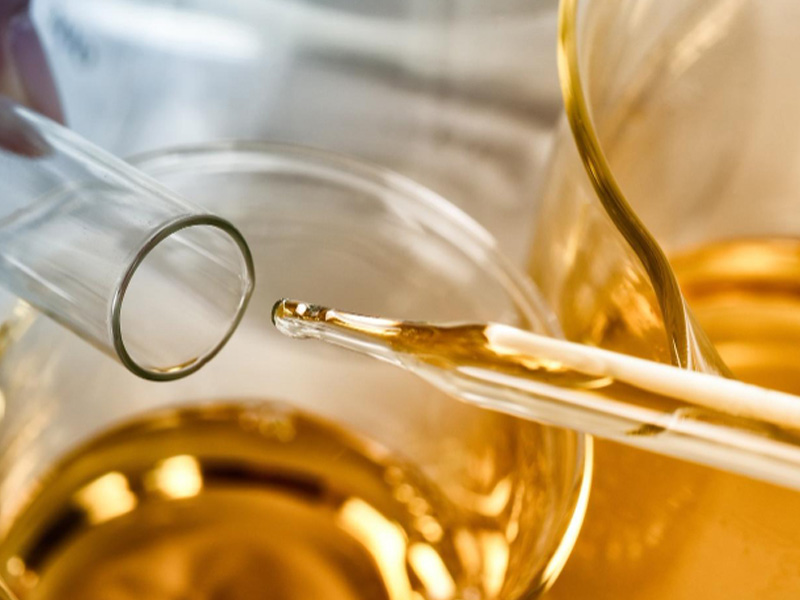
What is an additive in lubricants?
An additive in lubricants is a chemical compound that is added to base oils to enhance their performance, protect both the lubricant and the machinery it is used in, and optimize their properties for specific applications. Additives play a vital role in improving the lubricant's characteristics, addressing any deficiencies in base oils, and extending the service life of the lubricant.
Some common types of lubricant additives include:
Viscosity Modifiers: These additives improve the viscosity-temperature traits of the lubricant. They prevent the oil from becoming too thin when temperatures are high and too thick when temperatures are low, ensuring consistent performance across various operating conditions.
Anti-wear Additives: Anti-wear additives form a protective film on the surfaces of moving parts to minimize metal-to-metal contact and reduce friction, thereby decreasing wear and tear on machinery.
Antioxidants: Antioxidants prevent oil oxidation, which can lead to the formation of sludge, varnish,
and other harmful deposits. By doing so, they extend the service life of the lubricant and help keep the machinery clean.
Detergents: Detergent additives help maintain cleanliness in engines and machinery by neutralizing acidic by-products and dispersing soluble contaminants in the oil, which prevents deposits from forming on surfaces.
Dispersants: Dispersants prevent the accumulation of contaminants and the formation of sludge, varnish, and other deposits by keeping them dispersed in the oil. This enables easier removal of these contaminants during oil changes or filtration processes.
Rust and Corrosion Inhibitors: These additives protect metal surfaces in the machinery against rust and corrosion by forming a protective layer on the surfaces, reducing the potential for oxidation and moisture damage.
Anti-foam Agents: Foam can impair the performance of a lubricant by reducing oil film thickness and promoting air entrainment. Anti-foam agents control foam formation by reducing the surface tension of the oil and accelerating the breakdown of any foam that forms.
Pour Point Depressants: These additives improve the flow properties of the lubricant at low temperatures, reducing the temperature at which the lubricant becomes too thick to pour or flow, and consequently, enhancing cold-start performance.
Friction Modifiers: Friction modifiers alter the frictional properties of the lubricant to minimize energy consumption, reduce wear, and improve fuel efficiency.
Applications of Lubricant Additives
Lubricant additives are used to improve the performance of lubricants by reducing friction, preventing corrosion, and dissipating heat. They are used in many industries, including manufacturing, automotive, and maritime.
Reducing friction
Lubricant additives reduce friction between moving parts, which can help prevent wear and tear.
Preventing corrosion
Lubricant additives protect metal surfaces from rust and corrosion.
Dissipating heat
Lubricant additives absorb and dissipate heat, which can help prevent overheating and damage to machinery.
Reducing wear
Lubricant additives reduce wear between metal surfaces, which can help prevent scuffing and other damage.
Reducing noise
Lubricant additives can help reduce noise in applications where noise can be an issue.
Prolonging lubricant life
Antioxidants can help prolong the life of a lubricant by increasing its oxidative resistance.
Lubricant additives play an essential role in maximizing the performance, efficiency, and reliability of lubricants in various applications. Selecting the most suitable additives for specific applications contributes to the longevity and smooth operation of machinery and equipment.
Lubricant Additives Supplier
UNPChemicals is a professional lubricant additives provides high quality friction reducers and lubricant additives for global customers. If you are looking for friction reducers, feel free to contact us.